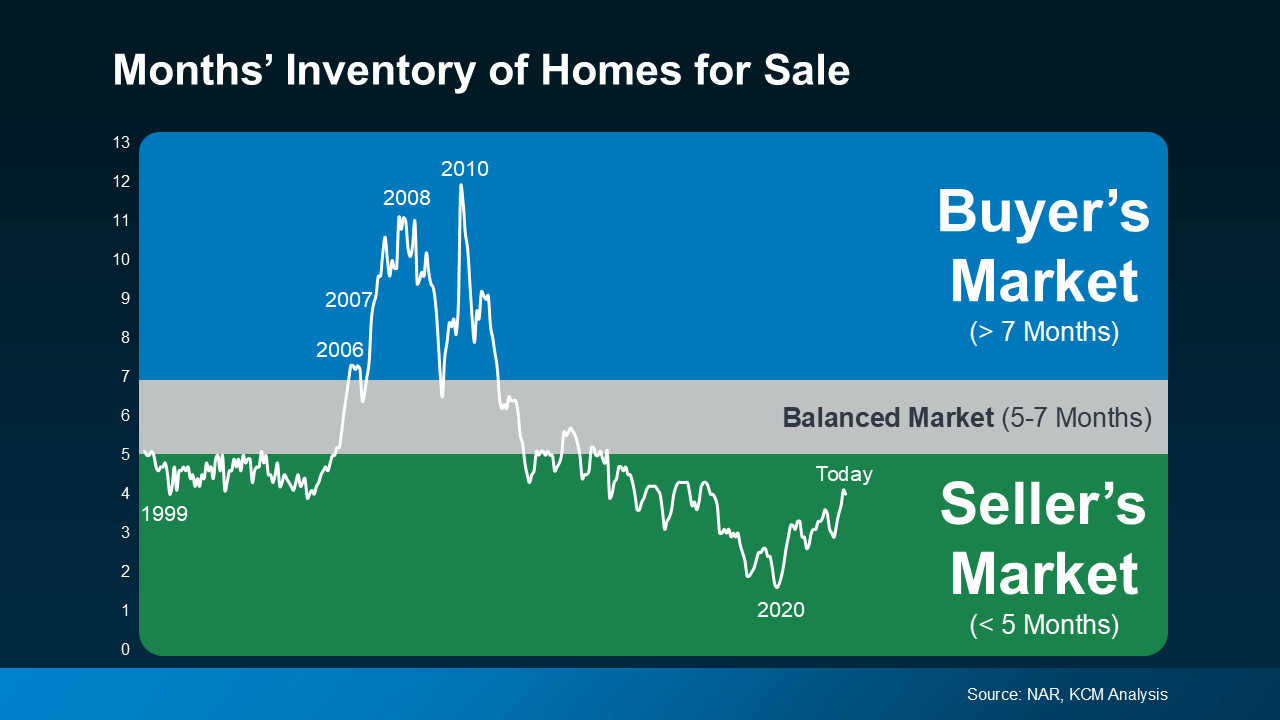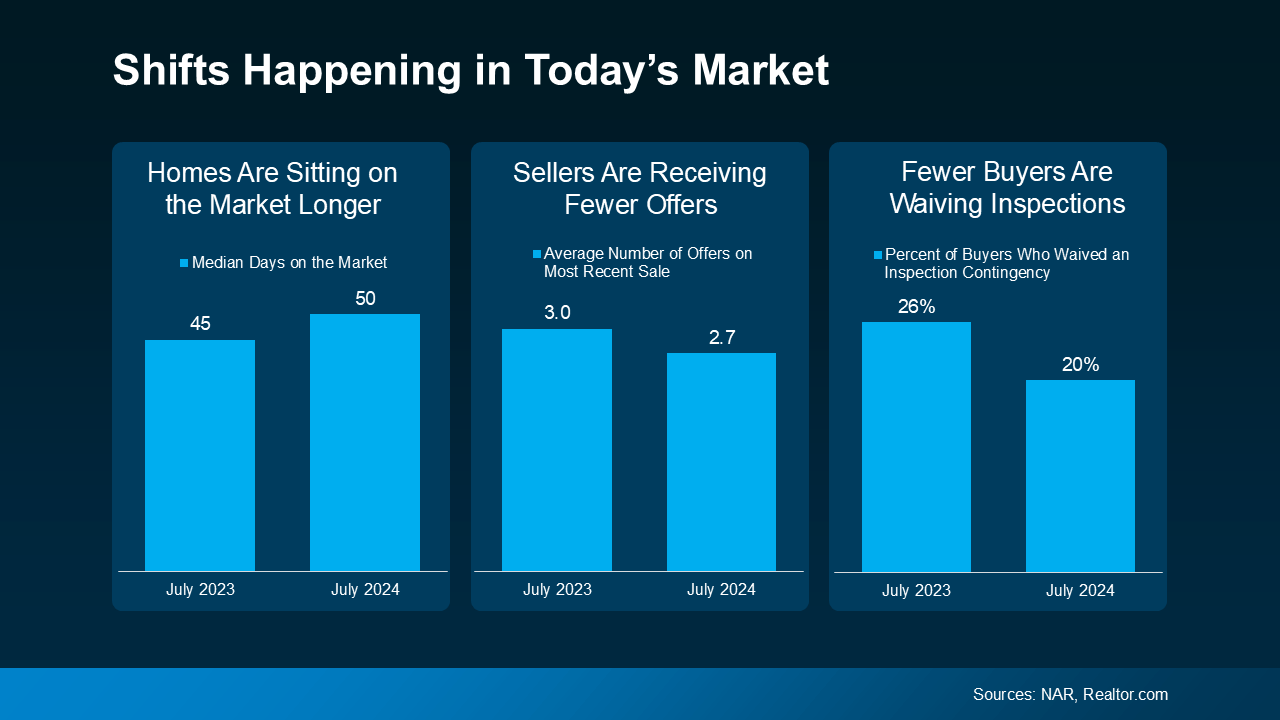Are We Heading into a Balanced Market?
Are We Heading into a Balanced Market?

If you've been following the housing market over the past few years, you're aware that sellers have had the upper hand. But with inventory on the rise, is that dynamic about to change? Here’s a breakdown of what you need to know.
What Is a Balanced Market?
A balanced market is typically defined as having about a five-to-seven-month supply of homes available for sale. In such a market, neither buyers nor sellers have a distinct advantage. Prices tend to stabilize, and there’s a healthier selection of homes to choose from. After many years of sellers holding the leverage, a more balanced market would be a welcome change for those looking to move. But is that really where the market is headed?
At the start of the year, the national supply of homes was around three months, and it has since increased to four months. While that might not seem like a significant change, it indicates that the market is gradually moving closer to balance, even though it hasn't quite reached that point yet. It’s important to note that this increase in inventory isn’t leading to an oversupply that could cause a crash. Despite the recent growth, there’s still not enough supply for such a scenario.
The graph below, using data from the National Association of Realtors (NAR), provides a snapshot of where inventory levels have been in the past and where they stand today:
 For now, we’re still in a seller’s market—it’s just not as intense as it has been in recent years. As Mark Fleming, Chief Economist at First American, puts it:
For now, we’re still in a seller’s market—it’s just not as intense as it has been in recent years. As Mark Fleming, Chief Economist at First American, puts it:
“The faster housing supply increases, the more affordability improves and the strength of a seller’s market wanes.”
What This Means for You and Your Move
Here's how this shift affects you and the market conditions you'll encounter when you decide to move. Lawrence Yun, Chief Economist at NAR, explains:
“Homes are sitting on the market a bit longer, and sellers are receiving fewer offers. More buyers are insisting on home inspections and appraisals, and inventory is definitively rising on a national basis.”
The graphs below, utilizing the latest data from NAR and Realtor.com, illustrate these changes:
 Homes Are Sitting on the Market Longer: With more homes available on the market, they aren't selling as quickly. For buyers, this means you may have a bit more time to find the right home. For sellers, it’s crucial to price your house competitively if you want it to sell. If you don't, buyers might opt for better-priced alternatives.
Homes Are Sitting on the Market Longer: With more homes available on the market, they aren't selling as quickly. For buyers, this means you may have a bit more time to find the right home. For sellers, it’s crucial to price your house competitively if you want it to sell. If you don't, buyers might opt for better-priced alternatives.
Sellers Are Receiving Fewer Offers: As a seller, you might need to be more flexible and open to compromising on price or terms to close the deal. For buyers, you may begin to encounter less intense competition, as there are more options available to choose from.
Fewer Buyers Are Waiving Inspections: As a buyer, you now have more negotiation power, which is why fewer buyers are waiving inspections. For sellers, this means you need to be prepared to negotiate and address repair requests to keep the sale on track.
How a Real Estate Agent Can Help
However, this is just a national overview. The type of market you're in can vary significantly depending on the local inventory levels. That's why it's essential to rely on a local real estate agent for insights into how your area compares.
Whether you're buying or selling, understanding the market's shifts gives you a significant advantage. Your agent has the latest data and local expertise, ensuring you know exactly what's happening and how to navigate it effectively.
Bottom Line
The real estate market is constantly evolving, so staying informed is crucial. Whether you're buying or selling, understanding this shift toward a more balanced market can be incredibly beneficial. If you have any questions or need expert advice, don't hesitate to reach out.
Categories
Recent Posts










GET MORE INFORMATION

